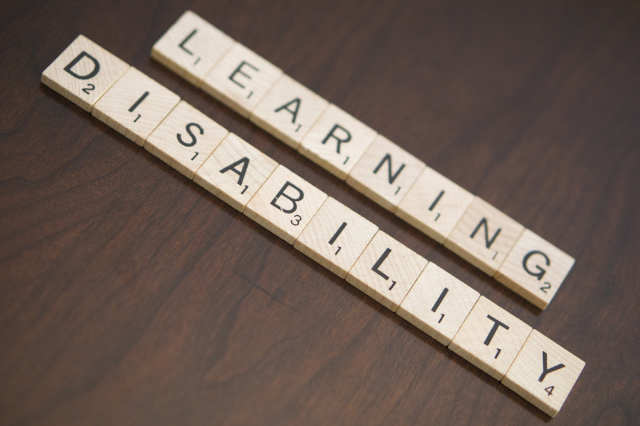Learning disability in Northern Ireland: Where are we now?
This article was written by second year Ulster University Student Michael McVeigh (Health and Social Care Policy), based on a research report completed while on a six-week work placement in the Northern Ireland Assembly Research and Information Service. It gives an overview of how people with learning disabilities are being cared for in Northern Ireland and asks the question: how have health and social care needs and policy development improved since the Bamford review published its Equal Lives Report in 2005?

Health and social care needs of people with learning disabilities
There is, to date, no comprehensive database for the number of people with a learning disability in NI. However, it is estimated, based on figures from GP Registers that in Northern Ireland less than 1% of the adult population have a learning disability.
There are a range of health inequalities affecting people with learning disabilities. Figures show that 17% of people with learning disabilities in England are underweight in contrast to just 2% of the general population (in part due to hyperactivity). In contrast, people with learning disabilities can also be prone to higher levels of obesity (which can lead to type 2 diabetes) for various reasons, such as anti-psychotic medication and sedentary behaviour. Other health issues include around half having visionary problems, a quarter with hearing loss, a third with limited verbal communication and a fifth with no verbal communication. Furthermore, 40% experience additional mental health issues.
In addition to health inequalities, higher levels of premature death compared with the general population has also been highlighted. A ‘Confidential Inquiry Report into the Premature Deaths of People with Learning Disabilities’ reviewed the deaths of 247 people with learning disabilities in England between 2010-12 and found the median age of death for males in the UK to be 17% lower than the general population and 25% lower for females.
Informal carers provide much needed health and social care support to those with learning disabilities. There are around 220,500 informal (unpaid) carers in Northern Ireland providing support worth an estimated £4.6 billion per year (around the same as the entire Northern Ireland health budget). Around 9% of these provide care for ‘someone with a learning disability’ with many carers in poor health themselves.
Funding
In recent years, funding for this group continues to be lower in Northern Ireland than any other region of the UK despite higher levels of need, with only 6% of the total Health and Social Care spending being allocated to learning disability in 2016.
Although overall spending on learning disability in Northern Ireland increased by 15% between 2010 and 2015, the number of people here with learning disabilities also continues to rise, and it has been highlighted that current one year commissioning is too short to plan long-term strategies for this group.
Relevant policy development and actions: The Bamford Review
The Bamford Review’s Equal Lives Report in 2005 was a key direction-setting report and brought equality for learning disabilities to the fore. A range of Departmental Action Plans followed the Bamford Review reports: the Bamford Action Plan 2009-11 and the Bamford Action Plan 2012-15. These plans contained 76 Actions to improve the lives of people with mental health issues and learning disabilities.
Monitoring reports in 2013 and 2014 showed that 50 out of the 76 Actions had links to learning disability. The 2014 monitoring report showed that all 50 were ‘likely to be achieved’. 16 Actions out of the 50 were specific to learning disability. For example:
- Action 13 (resettle all long-stay patients and close all long-stay hospitals by 2015) (According to the Department of Health, by 2016 there were 25 inpatients still remaining); and
- Action 30 examined options to tackle the barriers that prevent people with learning disabilities from using public transport. For example, Positive Future’s Better Together Project, enabled mentors to help people with learning disabilities to use public transport as part of a Christmas ‘Travel Training’ initiative in December, 2016.
A key action arising from the Bamford Review was the fusion of mental health and mental capacity law into a single piece of legislation to deal with the legalities surrounding a lack of mental capacity. This has been achieved under the Mental Capacity Act (Northern Ireland) 2016. However, implementation is some years away and the code of practice is in development.
A full review of the ‘Bamford Action Plan 2012-15’ was expected early in 2017 but is yet to be published.
‘Transforming Your Care’
For over two decades an overarching policy direction has been the resettlement of long-stay residential patients with learning disability (who may not need to be there), from facilities such as Muckamore Abbey, to community living facilities. The original target for completion was 2002, and between 1992 and 2002 the number of long-stay patients in such facilities dropped from 878 to 453.
Transforming Your Care (2011) urged the completion of resettlement by 2015 with care to ‘be provided as close to home as practical’. Difficulties in resettling remaining patients included loneliness, family circumstances and that ‘life was not better especially for people with more complex needs’.
To support the transition, TYC also highlighted a need to increase awareness of Direct Payments to help individuals choose their own support in the community in a more personalised way.
TYC highlighted the need for a new service framework setting out standards of care for those with learning disability. This was subsequently published in 2015.
The Northern Ireland Assembly’s Health Committee reviewed aspects of TYC and in 2014 published Transforming Your Care: Learning Disability Services. Recommendations included that primary and secondary care providers make ‘reasonable adjustments’, a key obligation for service providers under the Disability Discrimination Act 1995. It also recommended that the Public Health Agency promote the health of this population and one outcome has been the creation of a ‘passport folder’ for hospital staff which holds helpful information on how to communicate with service users.
Co-production and partnership working: ‘Systems, Not Structures: Changing Health and Social Care’ & ‘Health and Wellbeing 2026: Delivering Together’
Based on a recommendation in the Donaldson Report: The Right Time, The Right Place, an impartial panel of experts was appointed by the then Minister, Simon Hamilton MLA, in early 2016. The following Minister, Michelle O’Neill MLA, published the panel’s report Systems, Not Structures: Changing Health and Social Care (2016), concurrently with the Department of Health’s report: Health and Wellbeing 2026: Delivering Together (2017) with a strong focus on moving forward with multi-disciplinary working in primary care, partnership working and co-production.
A good example of co-production is adopted in the ‘Mental Health Recovery Colleges’ model in Northern Ireland where service users co-produce courses with professionals based on the values of ‘hope’, ‘control’ and ‘opportunity’. The Belfast Recovery College makes ‘reasonable adjustments’ for people with learning disabilities by ensuring that participation does not require the need for literacy skills.
A report by the Northern Ireland Audit Office (2017) welcomed the ‘Health and Wellbeing 2026’ strategy which realises TYC’s aspirations over the next 10 years and welcomed also the Department’s £30 million ring-fenced transformation fund, urging good leadership to ensure funding is placed into new community-based models.
Tackling stigma and social exclusion
Associated stigma around learning disability is an obstacle to people seeking help. Negative attitudes from the general population can lead to discriminatory attitudes. The ‘Bamford 2014 Monitoring Report’ highlighted how sport, for example, can play a crucial role in reducing stigma towards people with learning disabilities and studies show how contact at a personal level can create an attitude where people can identify with those with learning disabilities.
Observations
The sequence of reviews and recommendations highlighted in this article suggest a number of next steps which could further inform policy and service development in this area, for example the need for:
- A mortality review similar to that published in England in 2013: Confidential Inquiry into the Premature Deaths of People with Learning Disabilities;
- A central register to gather data on the number of people with learning disabilities in Northern Ireland, allowing a more accurate picture of the resources required to reduce health inequalities in this group;
- The expedient publication of the review of the Bamford Action Plan 2012-15 to gain an update on remaining related actions;
- More information on Direct Payments to be provided to service users. There is increased awareness with a rising number of claimants (TYC). This enables service providers to offer personalised support such as ‘Self-Directed Support’; and
- Training around the implications of the Mental Capacity Act (Northern Ireland) 2016, so that health and social care professionals have a good understanding of the impact for those with a learning disability.



